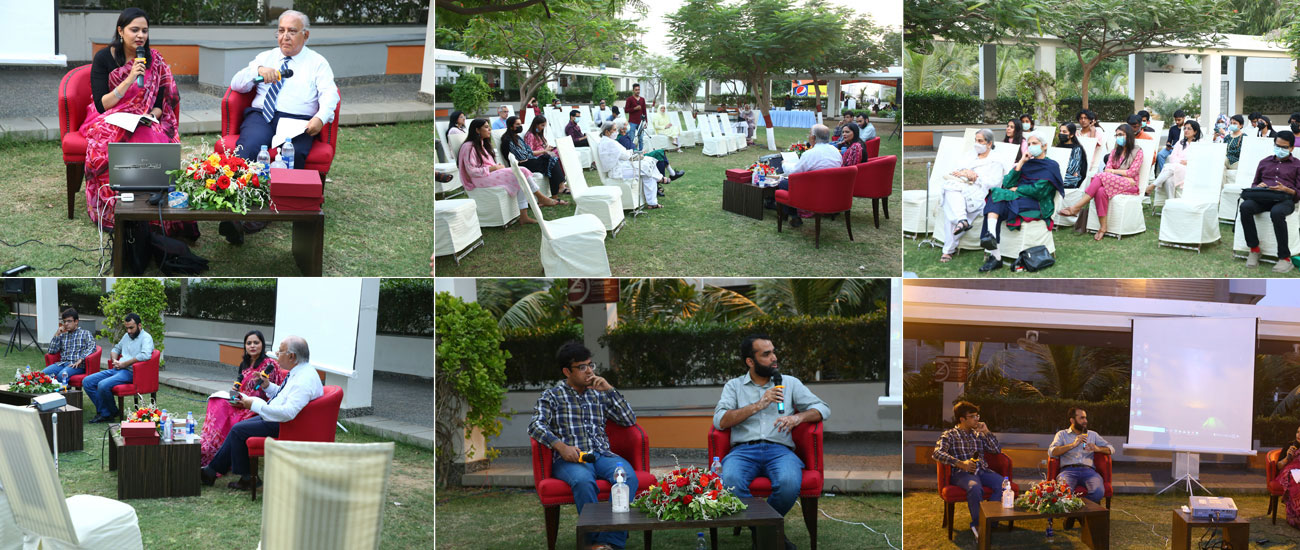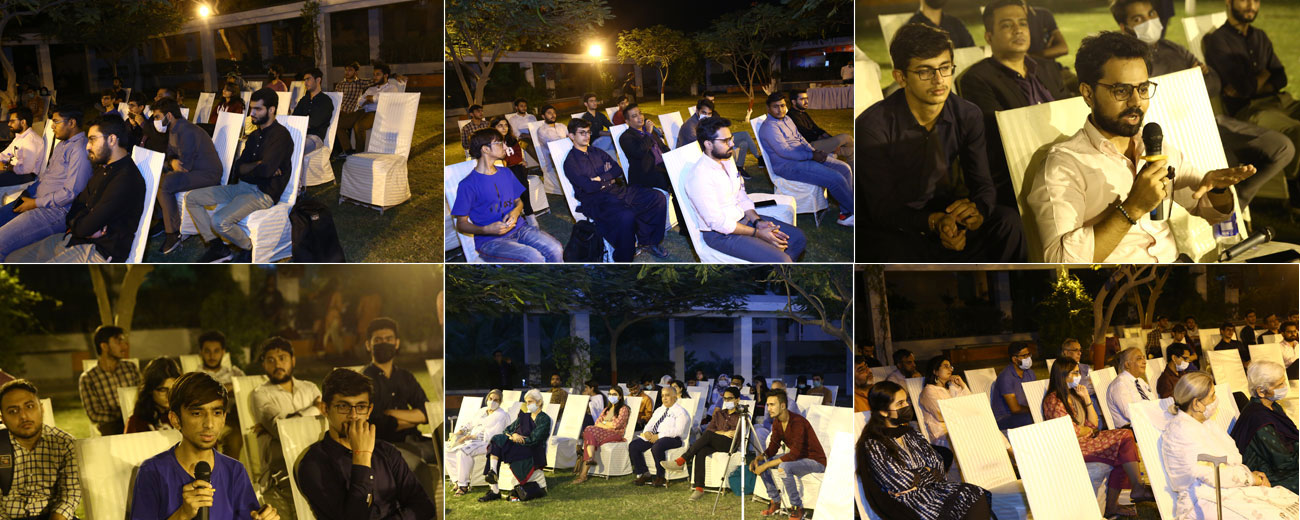How do Pakistani millennials acquire Urdu?
A conversation between three millennial translators on growing up bilingual, trilingual, and quadrilingual in diverse parts of Pakistan, and learning Urdu in an environment increasingly inundated with English words.
Date: Thurs, Oct 28th, 2021
Time: 5:30 to 7 pm
Venue: OBS Courtyard (IBA, Main Campus)
About the speakers:
Hassan Rehman is a Lahore-based software engineer and a bibliophile. He has served in leading editorial positions at student and alumni-run journals at FAST (an IT university in Lahore) during his college days, and as assistant joint editor of Funūn (a literary journal founded in 1963 by Ahmad Nadeem Qasmi). He is an accomplished translator from English to Urdu, and has published a number of political translations: Vijay Prashad’s Red Star Over the Third World (Naked Punch, 2020), Selected Speeches of Malcolm X (Naked Punch, 2020), and Selected Writings of Che Guevara (Naked Punch, 2021). In 2017, he founded the literary website Jaeza, where Urdu translations of the work of diverse writers such as Mudassar Bashir, David Foster Wallace, Teju Cole, Jorge Luis Borges, Johann Wolfgang von Goethe, Noam Chomsky, Hannah Arendt, Chimamanda Ngozi Adichie, Deborah Eisenberg, Conor Friedersdorf, Nicole Krauss, Thomas Merton, and George Papashvily are published on a regular basis. More details about this site can be found here.
Muhammad Ibrahim is a Peshawar-based civil engineering undergraduate student. Accomplished in three languages (Hindko, Urdu, and Pashto) from an early age, he is an active online commentator on linguistic and literary matters related to diverse aspects of Pakistani life and recently organized a ‘Twitter Space’ on Ghalib’s poetics, a new concept for a literary forum in the sphere of Urdu’s rapidly growing interactive digital landscape. He is a talented writer/translator, and has recently published a creative Urdu adaptation of George Papishvaly’s story "Yes, Your Honesty" (under the title Jaṭ Saib) from the context of a Russian worker in New York to that of a Pashtun worker in Karachi, and Urdu translations of Etgar Keret’s story "Pipes" (under the title Agar Firdaus…), and Nicole Krauss’ Seeing Ershadi (under the title Use Dekhnā). These translations can be found here.
Zahra Sabri is based in Karachi, and teaches Indo-Islamic History and Urdu Literature at IBA’s Department of Social Sciences and Liberal Arts. Her research focuses on the influence of the Persianate on Indo-Muslim languages, cultures, and traditions of learning, as well as the politics of identity centered around Urdu in South Asia. She is the curator of Koozah -- an anthology of Urdu short stories by new and little-known Pakistani writers (Oxford University Press, 2015). She is a literary translator and has translated folk and classical poetry from Urdu and almost a dozen other Pakistani languages into English for eleven seasons of the popular music program Coke Studio, Pakistan. She has contributed articles to Pakistan’s national press on diverse literary and educational issues over the years, and her journalistic writings can be found here.

